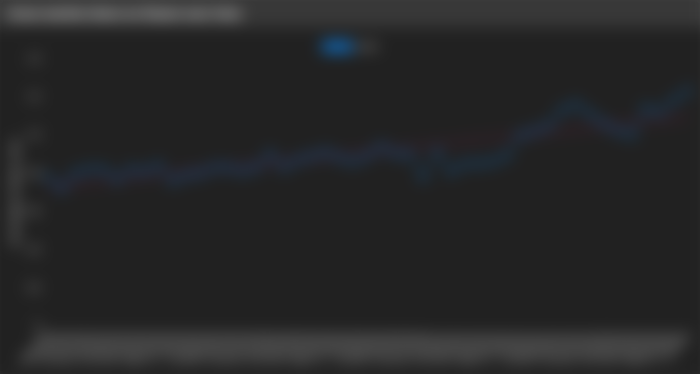The State of Linux - Great Progress, but Where Do We Go from Here?
In less than 2 weeks, the Steam Deck will have officially reached its half-year milestone. Back in May, I wrote about some of Linux gaming's most significant achievements as well as its shortcomings. At that time, about 2,500 games were 'Steam Deck verified' and Linux marketshare on Steam was in an uptrend. The bad news was that anti-cheat games remain tricky.
As of my previous Linux writeup, 42.2% of the anti-cheat games reported on Are We Anti-Cheat Yet? had support. Fast forward to now, the percentage grew albeit marginally to 45.6%. It's progress, but very slow progress.
That said, while multiplayer games make up a substantial portion of the video game market, they are not the be all, end all. While Linux still has a long ways to catch up to Windows in this department, how is it doing in other aspects?
New Milestones
As more time passes by, we now have additional data points to gauge Linux's momentum. According to the Steam Hardware Survey, Linux's marketshare grew to 1.23%. This is the highest marketshare it has achieved since GamingOnLinux began to track it when Valve launched the Proton compatibility layer. When looking at just English-speaking accounts, Linux also hit a new high of 2.97%.


We also see a similar pattern from a general use standpoint. According to StatCounter, Linux now comprises 2.76% of the OS marketshare, a record high. Up until April 2013, Linux operating systems hovered below 1% and it would take another 8 years until it finally eclipsed the 2% mark. It hit its previous record high in June 2021 at 2.68% though it was merely a spike before it normalized below 2.5% for the next year. Most likely, Linux's new record high is another spike, but the positive correlation is clear cut.

Much of the progress should be attributed to Steam Deck's modest success. While it's not selling like hotcakes (of which some of that can be blamed on supply chain issues), enough people are reserving orders for there to be a backlog. In addition, Valve continues to release updates for SteamOS which implies the company still cares. Just recently, the number playable or 'Steam Deck verified' titles has risen to 4,500. Some high-profile games such as Spider-Man Remastered receive the 'Steam Deck verified' label before they even release to market, suggesting that the Deck is grabbing even the big-name publishers' attentions.
And it runs pretty well, especially when using FSR 2.0 + a 40Hz refresh rate.
Steam Deck Finally Heads East
For months, the Steam Deck was limited to a select few regions. Not included in that list was East Asia. It was rather disappointing that the Deck did not release day-and-date in East Asia considering the potential market the device could tap into. Japan is basically handheld country. The Nintendo Switch outsells the home consoles without breaking a sweat. Taiwan and South Korea are pretty big PC markets, and a substantial fraction of their populations commute via public transit on a daily basis.
Finally, there is official progress on the Steam Deck's launch in East Asia as Valve has partnered with Komodo to launch the handheld in Japan, Taiwan, South Korea, and Hong Kong. There is still no word on exactly when the Decks will ship out, but this is better than radio silence and it does not affect the reservation queue of other countries. In fact, Valve has stated that it has ramped up production.
The Other Players Want A Piece of the Linux Pie, Too
Way before Steam Deck existed, there were other players in the PC handheld market. The most notable names are AyaNeo, GPD Win, and OneXPlayer. Their devices are rather expensive as their respective companies cannot mass produce them to drive down costs and they need to return a profit. However, the niche is there and despite the Steam Deck's success, the companies remain in the ring.
All of AyaNeo, GPD Win, and OneXPlayer's devices run on Windows. Full-fledged Windows is completely free on devices with screens under 9 inches and since running on Windows ensures full compatibility, it's a no-brainer. There is not really an incentive for them to dabble in Linux when they already have a solution in place.
In an unexpected twist, I was surprised to hear that each company has decided to make Linux an option on their devices. In an April 2022 interview with WePC, OneXPlayer VP Jason Zeng "comments that the team has been ‘working on’ shipping the OneXPlayer line of devices with a build of Linux or SteamOS in the future". In July 2022, GPD has stated on its Indiegogo page that Valve reached out to the company to have SteamOS work on its Ryzen 6800U handheld. AyaNeo has gone one step further than the aforementioned two companies when it announced that it is making its own Linux distribution, AyaNeoOS.
Announcement at 1:46:54
There are Still Many Obstacles
The fabled Year of the Linux Desktop is more of a meme than a serious concept. When people read the "Year of the Linux Desktop", they think industry-wide software support. That means popular professional software like Adobe's PhotoShop and Premiere work on Linux out of the box. It means all video games can run on Linux without tweaks and compatibility issues. While 2022 is the closest to achieving the meme, we are still nowhere close.
Linux has always been marred by the "chicken or the egg" situation. In order to gain popularity, Linux needs support from developers of popular software. However, the developers are not willing to spend resources to make and retain a Linux version of their respective software because the userbase is too small.
Valve seems to have figured out a solution on the gaming side. The Steam Machines failed because developers were not willing to make a Linux version of their games. As a result, Valve went back to the drawing board and concluded that the best solution would be to have games run on Linux with minimal developer intervention. And thus, Proton was born.
Unfortunately, this solution only applies to video games. Non-gaming proprietary software is an entirely different beast. Technically, you can run proprietary software via WINE, but the process of getting that to work will be a major turn-off for the average user. Case in point with PhotoShop:
The cold hard truth is that Linux will need to reach a large enough marketshare for the proprietary software developers to finally care. I do not know if 5% or 10% is the magic number, but even hitting 5% marketshare will take a few years. Linux is growing organically, but at a slow pace. What are some realistic, feasible solutions that can accelerate its growth? A possible answer: OEMs.
Convenience is Key
Valve's Steam hardware survey gives a big clue, particularly when you look at the Linux-only statistics. "AMD Custom GPU 0405" which is the Steam Deck's Van Gogh APU represents 7.56% of all Linux users. The same chip is not listed under "Vulkan Systems" when only looking at Windows users even though several GPUs have 0.00% marketshare. This strongly suggests that the vast majority of Steam Deck users stuck with SteamOS over installing Windows.
Consumers value convenience. Whatever comes installed in their hardware, they will stick with that operating system the majority of the time. This is why Windows has had a stranglehold in the PC market for decades. Laptops with pre-installed Linux is not a new concept. Dell has been doing it for years and recently announced the XPS 13 with Ubuntu 22.04. System76 collaborated with HP to make the HP Dev One. They have not sold as well as their Windows counterparts due to lack of mindshare.
This is where I think SteamOS has an advantage over other distributions. It has the name recognition as basically every PC gamer knows what Steam is. Because it is designed with gaming in mind (while also having normal desktop capabilities), SteamOS can be marketed towards PC gamers and Valve has the resources to do so. Realistically, I think Valve will collaborate with niche laptop makers like TUXEDO and Framework first. And then, Valve will work its way up to the big corporations like Dell.
But these are just my spitball thoughts and ideas. What are yours?


